News
News
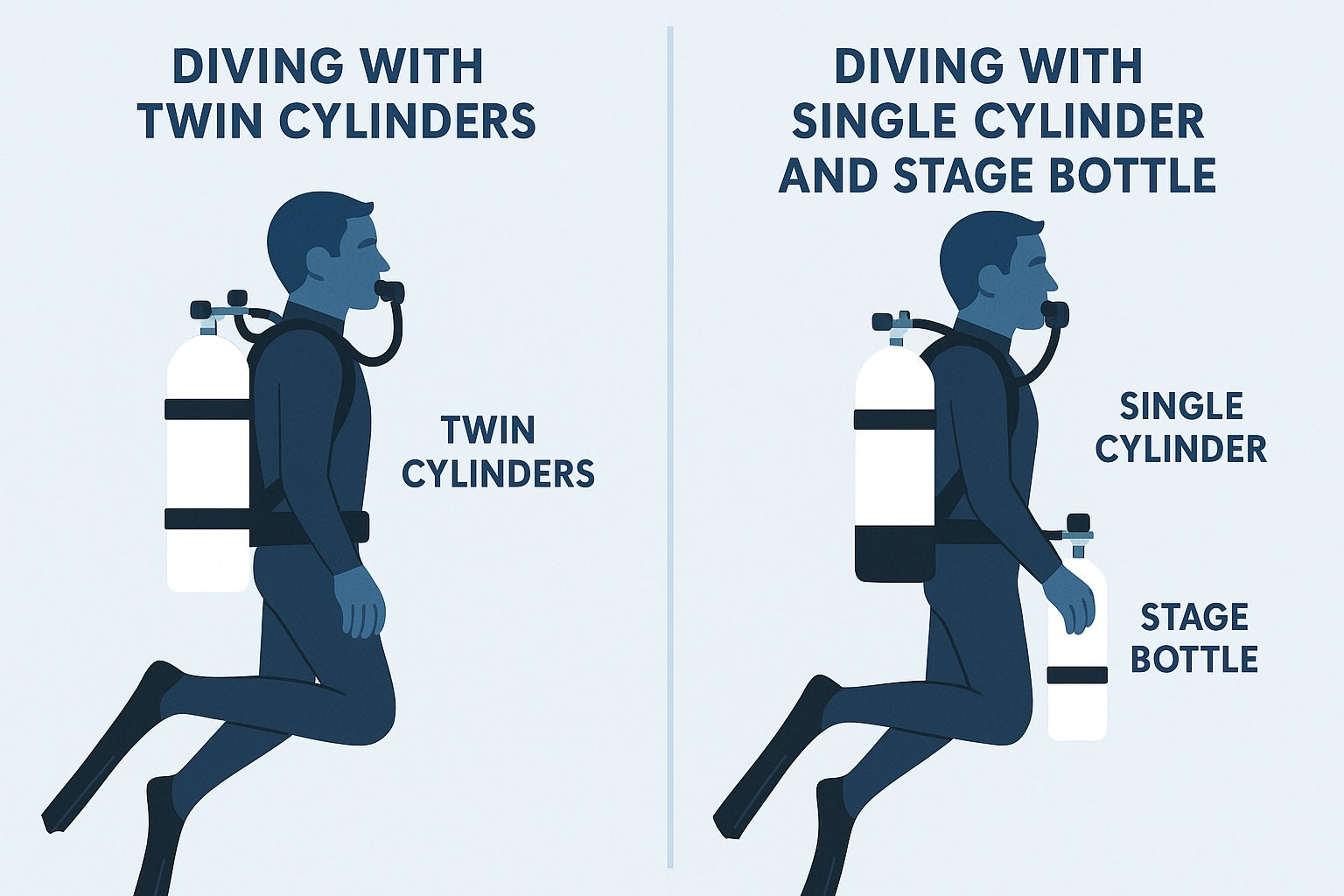
News
Mastering the Art of Doubles
Ultimately, the choice depends on the dive objective, environment, and diver competence. A wreck penetration at 50 metres with tight swim-throughs may favor the self-contained twinset, while an open-water trimix dive with deco stops may be better served by a modular stage approach.
News
Download the Mares app
The Mares App is more than just a digital catalogue — it’s your personal diving companion. Downloading this free app gives you access to an entire universe of diving information, all from one trusted brand that’s been serving divers worldwide for decades.
News
Dive into Terrigal Haven with Pro-Dive Central Coast
Venture on a journey beneath the waves of Terrigal Haven, exploring the marine world with the experts at Pro-Dive Central Coast. From colourful reefs to intriguing shipwrecks, there's a lot to discover beneath the surface.

News
Rescue diver training is a must for all divers!
Stress, fatigue, equipment issues, changing currents, or unexpected health problems can quickly turn a peaceful dive into a crisis. Unfortunately, many divers are not trained to identify the early signs of stress or to manage emergency situations effectively.

News
Golden rules of scuba diving
Scuba diving is more than just a sport or a hobby—it’s an incredible opportunity to immerse yourself in an entirely different world. Beneath the surface of the water lies an environment filled with astonishing marine life, vibrant coral reefs, dramatic shipwrecks, and seascapes that few people will ever get to experience first-hand. However, with this privilege comes responsibility. Every time you strap on your gear and take that giant stride into the ocean, you are placing your safety, your wellbeing, and the health of the underwater ecosystem into your own hands. That’s why the Golden Rules of Scuba Diving are not simply guidelines—they are fundamental principles that every diver, regardless of experience, should understand and follow without exception. These rules have been developed over decades of diving practice, safety research, and environmental observation. They are designed to keep you safe, ensure a smooth and enjoyable dive, protect your fellow divers, and preserve the delicate underwater world for future generations. For new divers, these rules form the building blocks of safe diving practice. For experienced divers, they serve as constant reminders that complacency has no place beneath the surface. From monitoring your air supply and never diving beyond your training limits, to respecting marine life and perfecting buoyancy control, each rule plays a critical role in shaping a responsible and skilled diver. Ignoring these core principles can lead not only to dangerous situations but can also harm the fragile marine environments that so many divers work hard to protect. The ocean is not our natural habitat—we are visitors in this underwater world. Acting with care, caution, and respect ensures that we enjoy its wonders without leaving a damaging footprint. In this guide, we will explore the key Golden Rules of Scuba Diving that every diver should know and live by. Whether you are preparing for your first dive or have hundreds of dives logged, these rules are your passport to safer, more rewarding underwater adventures. Here are ten essential safety principles every diver should follow to ensure a safe and enjoyable experience underwater. 1. Always Dive with a Buddy: Diving with a buddy is a critical safety measure. In case of an emergency, having a partner allows you to assist each other with equipment, air supply, or navigation issues.2. Plan Your Dive and Dive Your Plan: Before entering the water, make a detailed dive plan, including your depth, duration, and emergency procedures. Stick to the plan to avoid unexpected risks.3. Check Your Gear: Always perform a pre-dive equipment check (often called a "buddy check") to ensure your scuba gear, especially your regulator, buoyancy control device (BCD), and gauges, is functioning properly.4. Monitor Your Air Supply: Regularly check your air gauge to ensure you have sufficient air throughout the dive and maintain enough reserve to safely ascend and complete a safety stop.5. Ascend Slowly and Safely: A controlled ascent is vital to prevent decompression sickness ("the bends"). Always ascend at a safe rate (no faster than 9 metres per minute) and make a safety stop at 5 metres for 3-5 minutes.6. Equalise Early and Often: Equalise your ears and mask frequently during descent to avoid barotrauma (pressure-related injuries). Never force equalisation; if you are unable to equalise, stop your descent and ascend if needed.7. Within Your Limits: Dive within your training, experience, and comfort level. Avoid diving deeper or under more challenging conditions than what you are certified and prepared for.8. Maintain Good Buoyancy: Proper buoyancy control is key to safe diving. It helps prevent accidental collisions with the seabed, coral, or marine life and reduces fatigue from unnecessary effort.9. Be Aware of Your Surroundings: Keep track of your dive location, your buddy, your depth, and potential hazards like currents, boat traffic, or marine life. Stay alert to avoid dangerous situations.10. Respect the Underwater Environment: Avoid touching or disturbing marine life, corals, or fragile underwater ecosystems. Not only is this for environmental conservation, but some creatures can be dangerous if disturbed.These safety principles form the foundation for safe scuba diving, helping divers minimise risks and enjoy the underwater world responsibly.
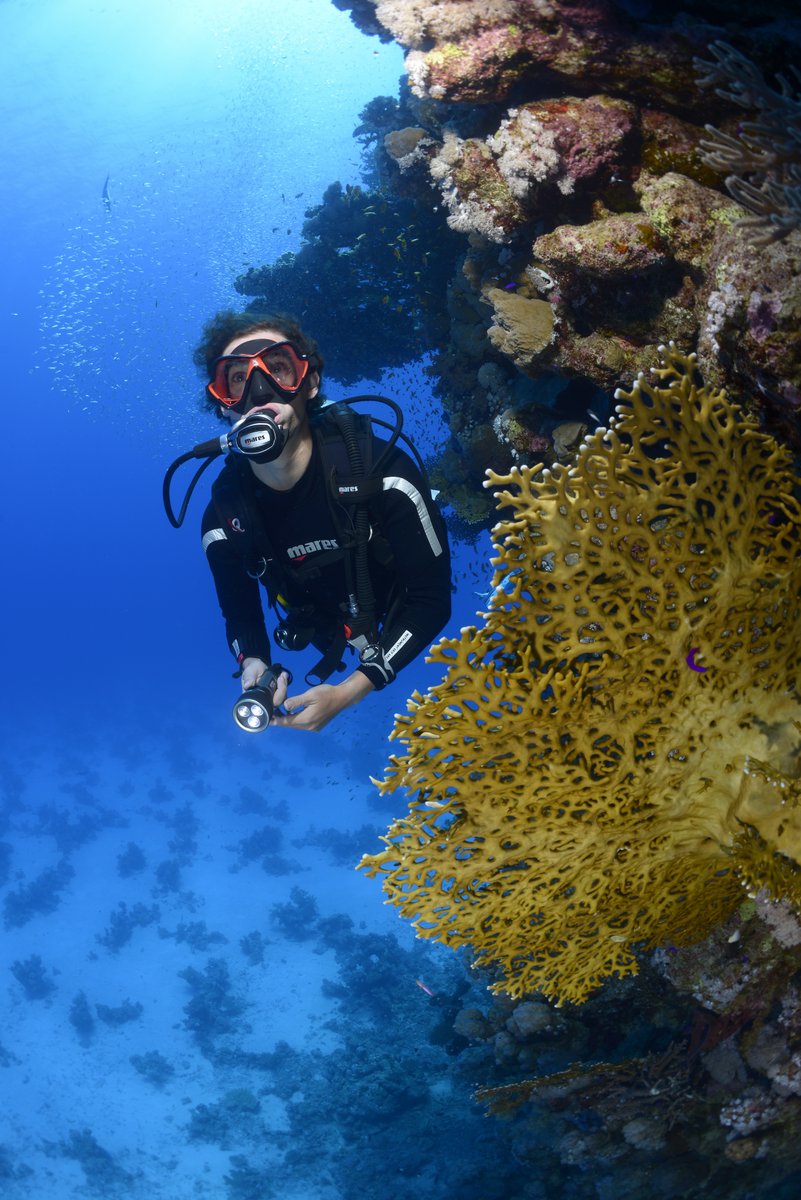
News
Four Fundamentals of Buoyancy Control
Whether you are a new diver struggling to perfect your buoyancy techniques, or someone who is looking to polish on your already good skills-

News
Dive into the Future: Exploring the underwater world
Are you ready to embark on an extraordinary underwater adventure that takes you to the horizon and beyond?

News
A Guide for Divers After a Long Break
This checklist is designed to help you safely ease back into diving after a long layoff.
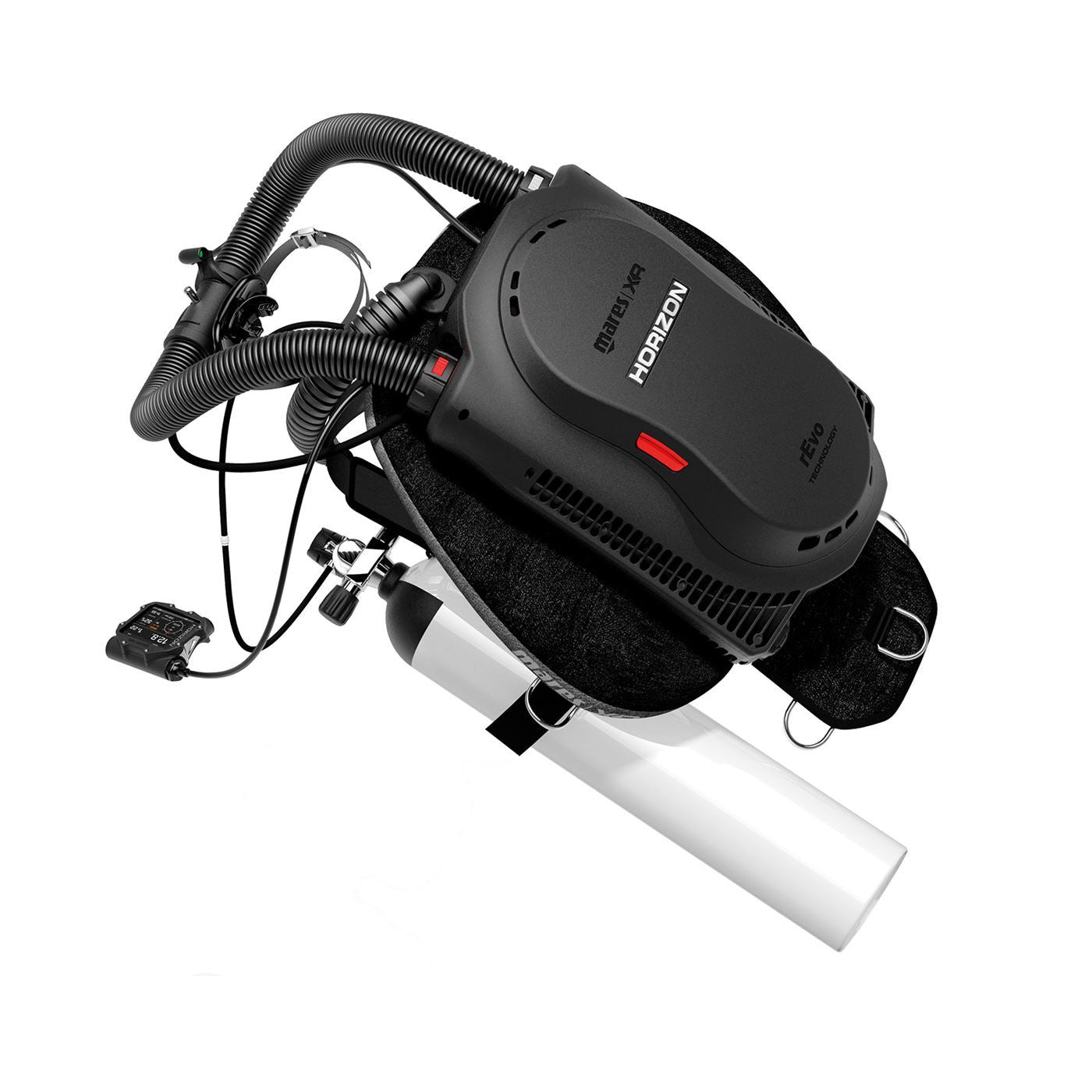
News
Discover the Silence and Freedom of Rebreather Diving with Pro-Dives' Try SCR Program
Take the first step toward an extraordinary underwater journey with the Mares Horizon SCR. We’ll see you beneath the surface!
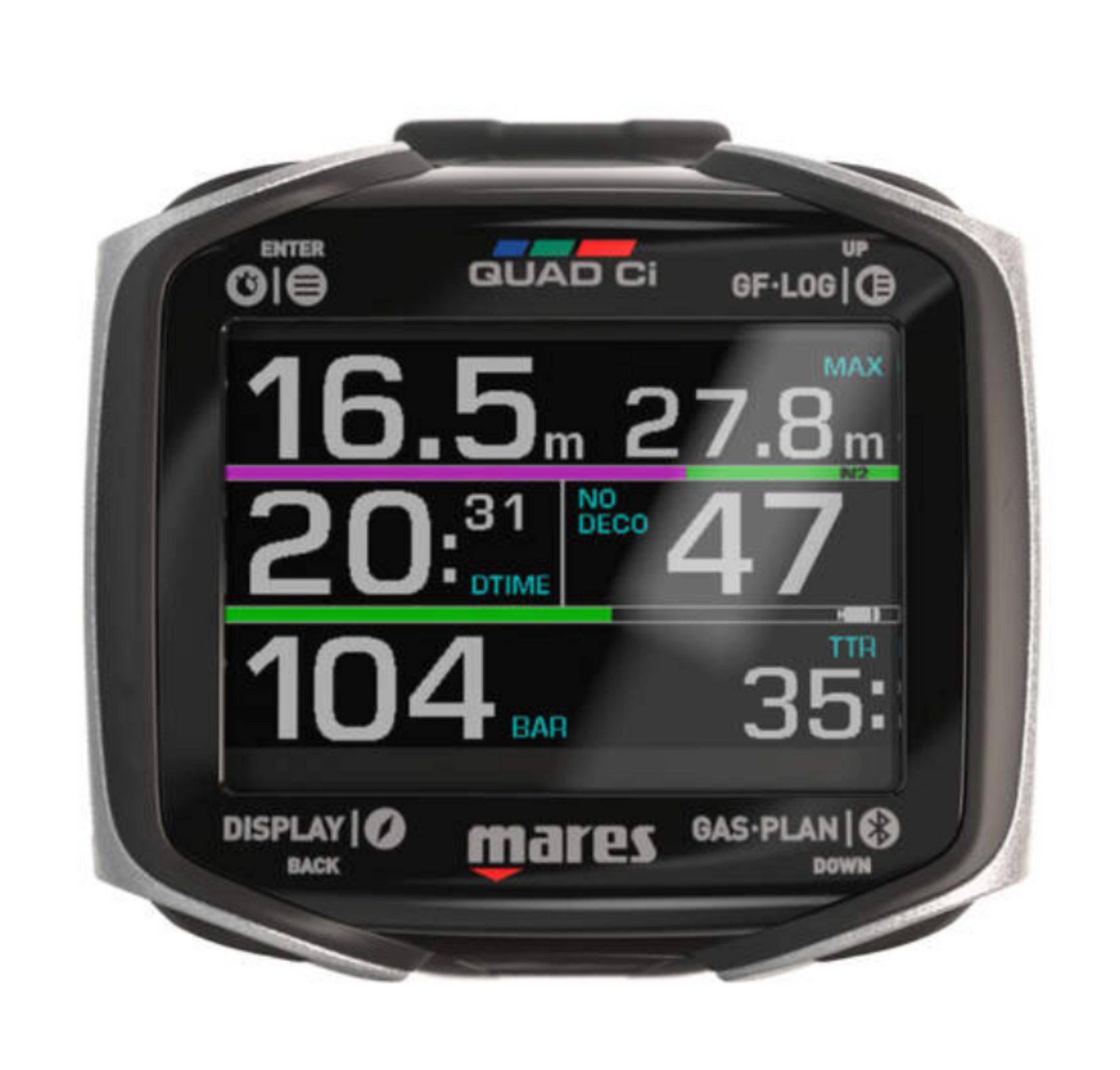
News
The Importance of Proper Gas Management in Extended Range Diving
Mastery in selecting appropriate gas mixtures and monitoring consumption is vital to prevent running out of gas, a scenario that can lead to severe injury or even loss of life.
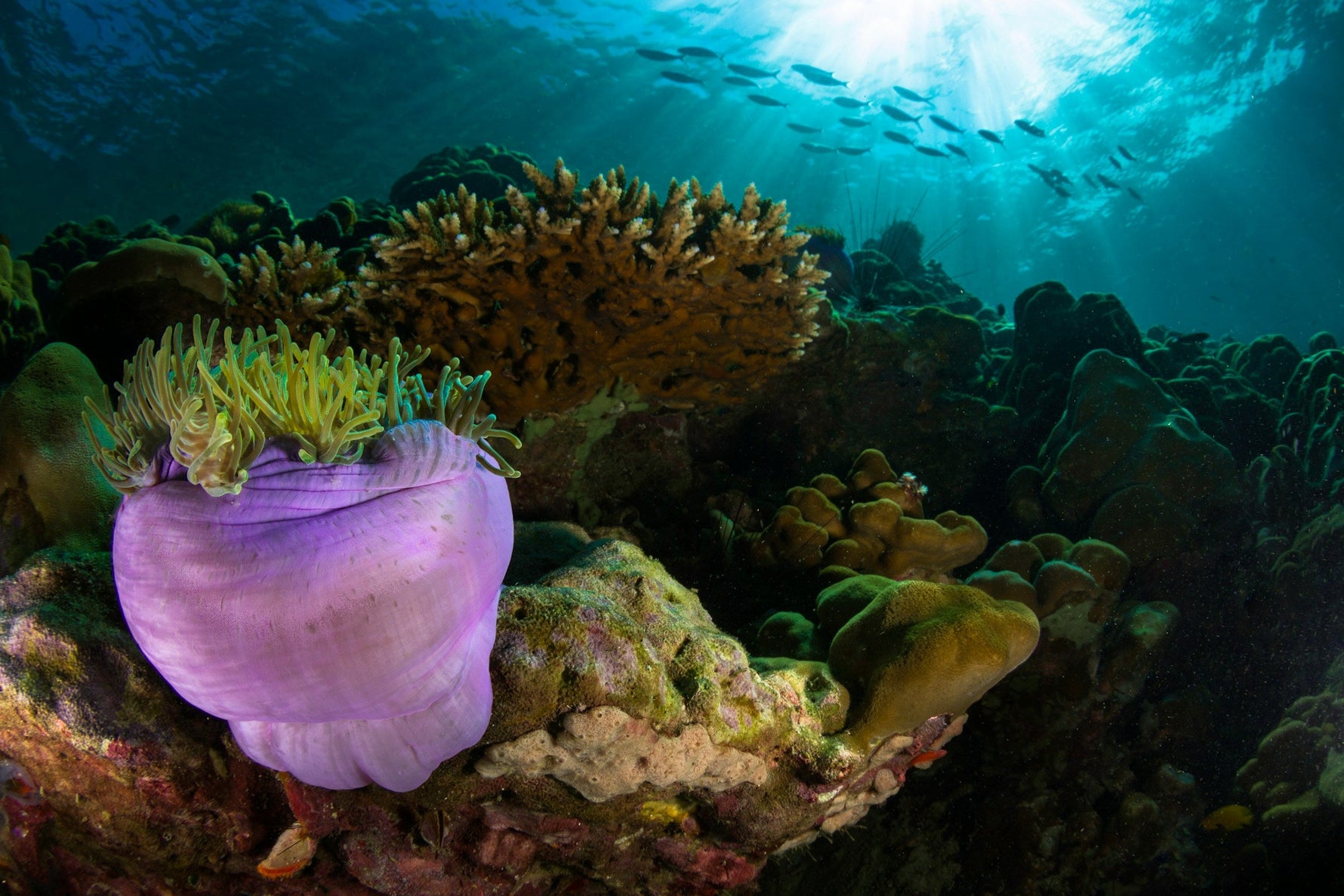
News
Planning Scuba Diving Trips: Local, Interstate, and Overseas
Planning a scuba diving trip—whether local, interstate, or overseas—requires research, preparation, and attention to detail. From selecting dive sites to ensuring your gear is in top condition, these steps will help you create safe, enjoyable, and memorable dive experiences.
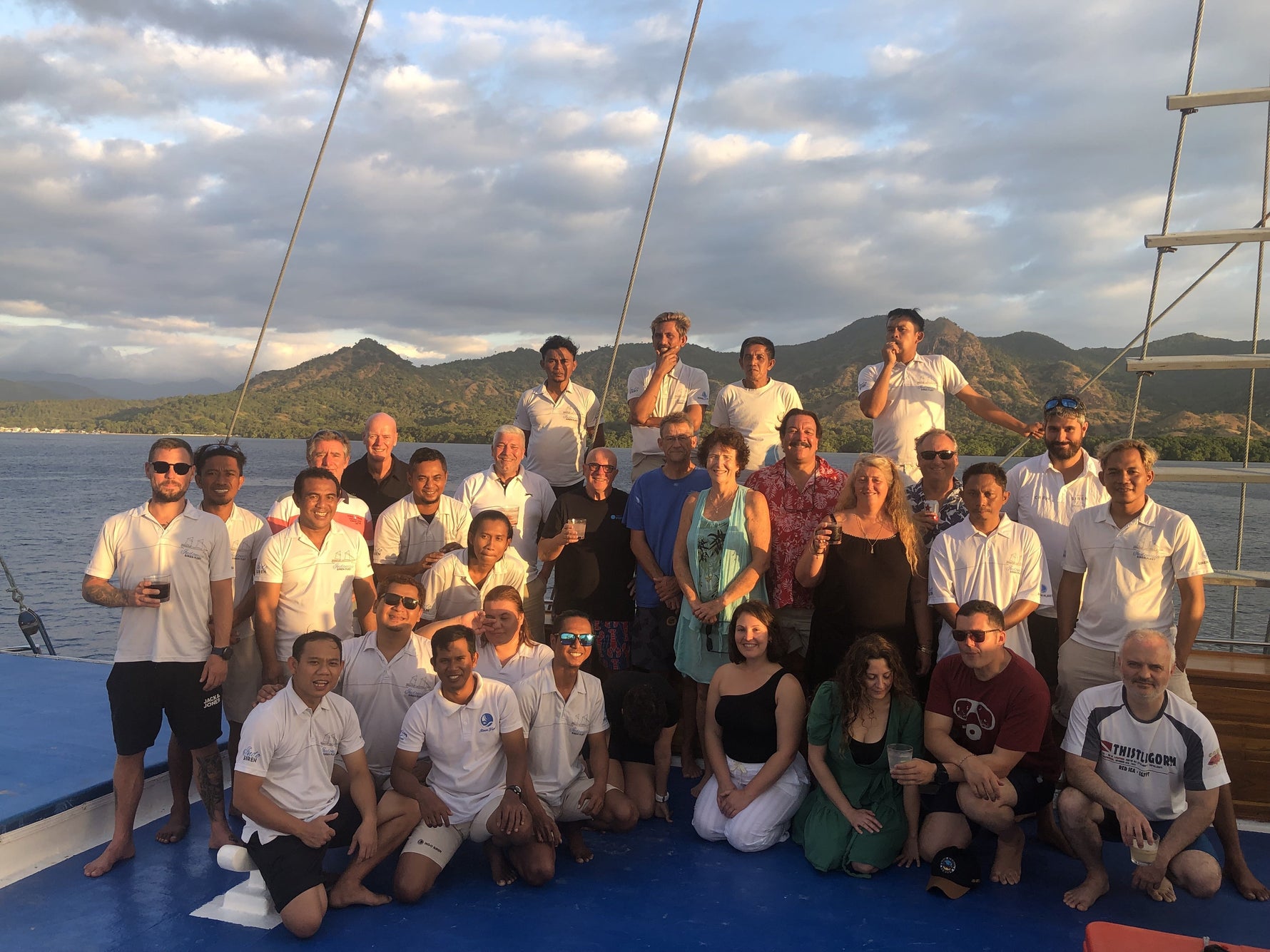
News
Planning a scuba diving holiday?
When it comes to planning a scuba diving holiday, follow these tips to make your scuba holiday safe and enjoyable with ProDive Central Coast.
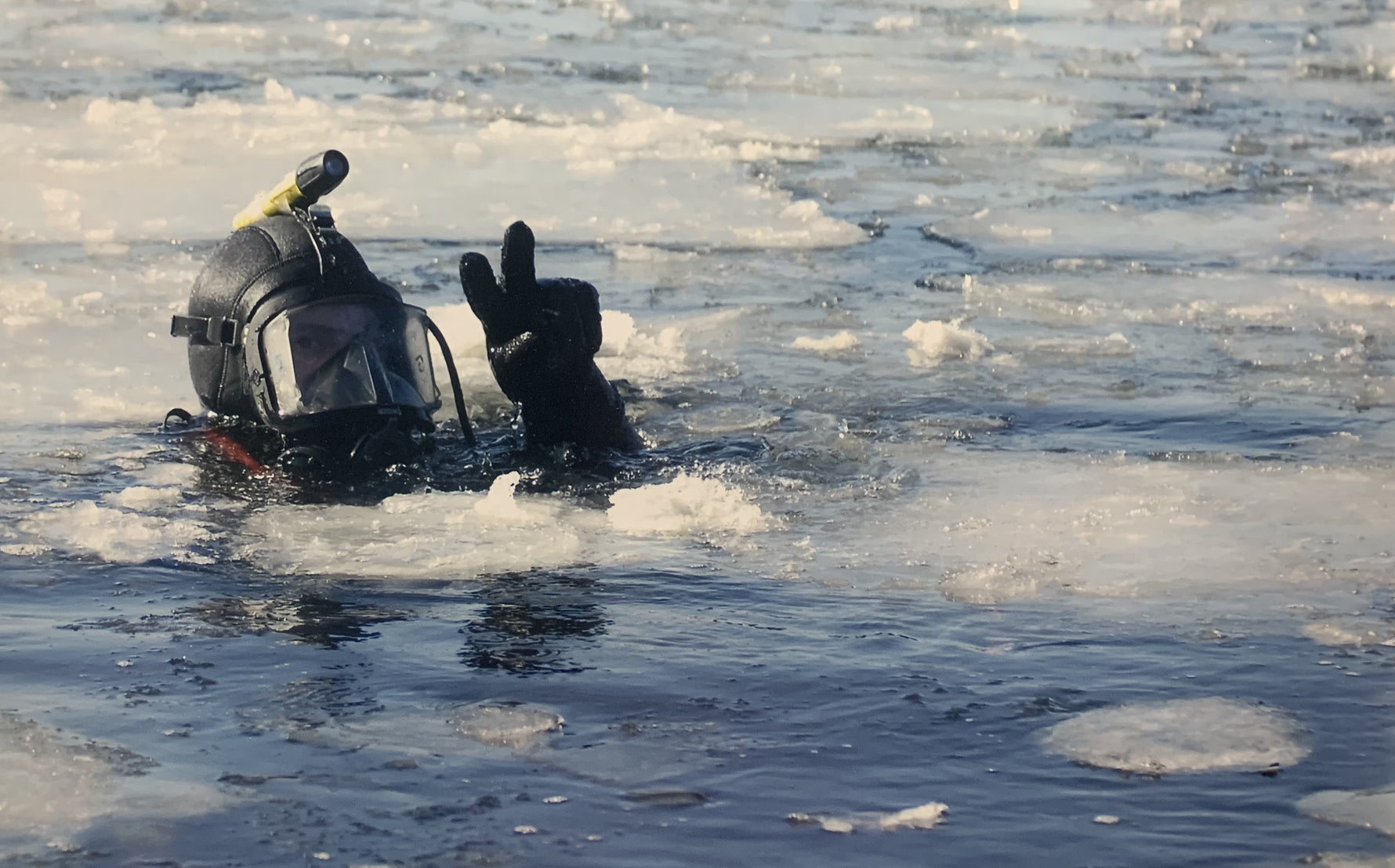
News
Ten very good reasons for wearing a dry suit all year round.
Wearing a dry suit whilst scuba diving offers a range of benefits, making it a valuable investment for year-round diving. Here are 10 excellent reasons to wear a dry suit:1. Thermal Protection: A dry suit provides superior insulation in cold water, keeping you warm even in icy temperatures, allowing for diving in cold regions or during winter.2. Extended Dive Time: Staying warm helps prevent hypothermia, enabling longer dives without the discomfort or risk associated with cold water exposure.3. Diving in Various Conditions: A dry suit allows you to dive comfortably in a wide range of environments, from frigid waters to temperate seas, expanding your diving opportunities.4. Year-Round Diving: With a dry suit, you can dive year-round regardless of seasonal temperature changes, offering flexibility for continuous diving activities.5. Control Over Insulation: You can adjust the undergarments worn beneath the dry suit to increase or decrease insulation depending on the water temperature, providing versatility.6. Improved Buoyancy: Dry suits offer added buoyancy control, which helps divers achieve better stability in the water. This is particularly useful in cold waters where thick neoprene wetsuits may be restrictive.7. Enhanced Comfort: By keeping you dry, a dry suit minimises the discomfort of cold water contact, allowing for more comfortable and enjoyable dives.8. Protecting Skin from Harsh Elements: A dry suit offers full-body protection against harmful marine life, pollutants, and rough underwater environments like rocks, which can cause cuts or stings.9. Increased Safety: Cold water can lead to loss of coordination and increased risk of accidents. A dry suit keeps your core body temperature stable, reducing the risk of cold-related accidents.10. Easier Surface Intervals: Staying dry between dives is more comfortable during surface intervals, especially in windy or cold conditions, reducing the likelihood of feeling chilled before your next dive.A dry suit provides essential protection and flexibility for diving in diverse conditions, making it a smart choice for divers who want to dive year-round.
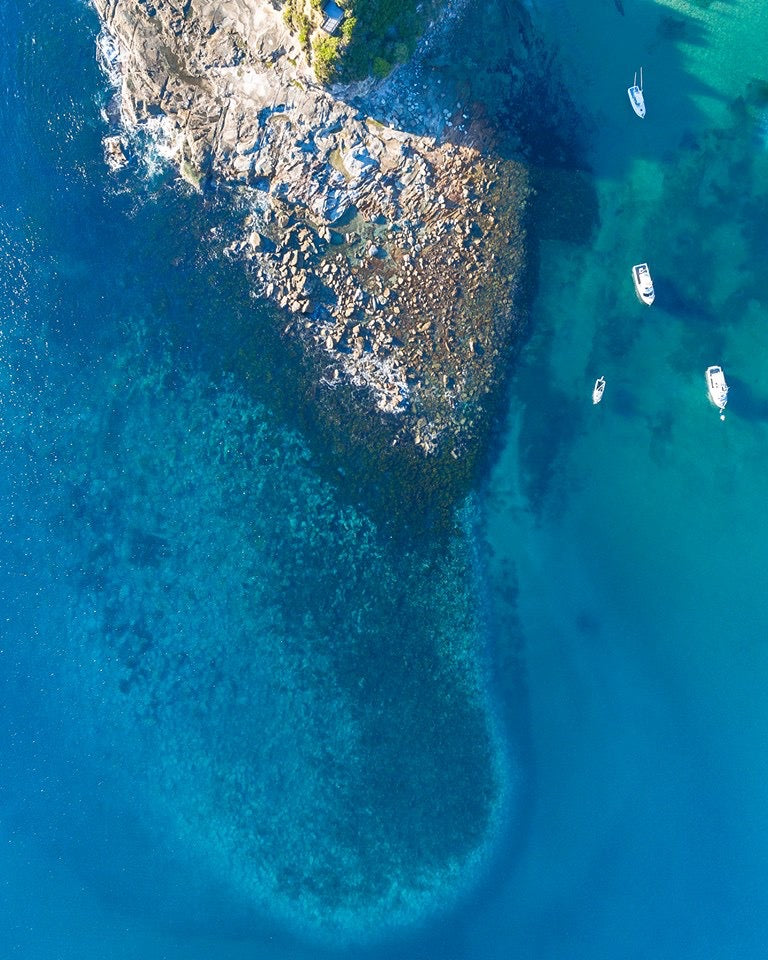
News
Dive under the NSW Central Coast.
Whether you're a beginner looking to take your first breaths underwater or an experienced diver seeking new challenges, the Central Coast has something to offer everyone
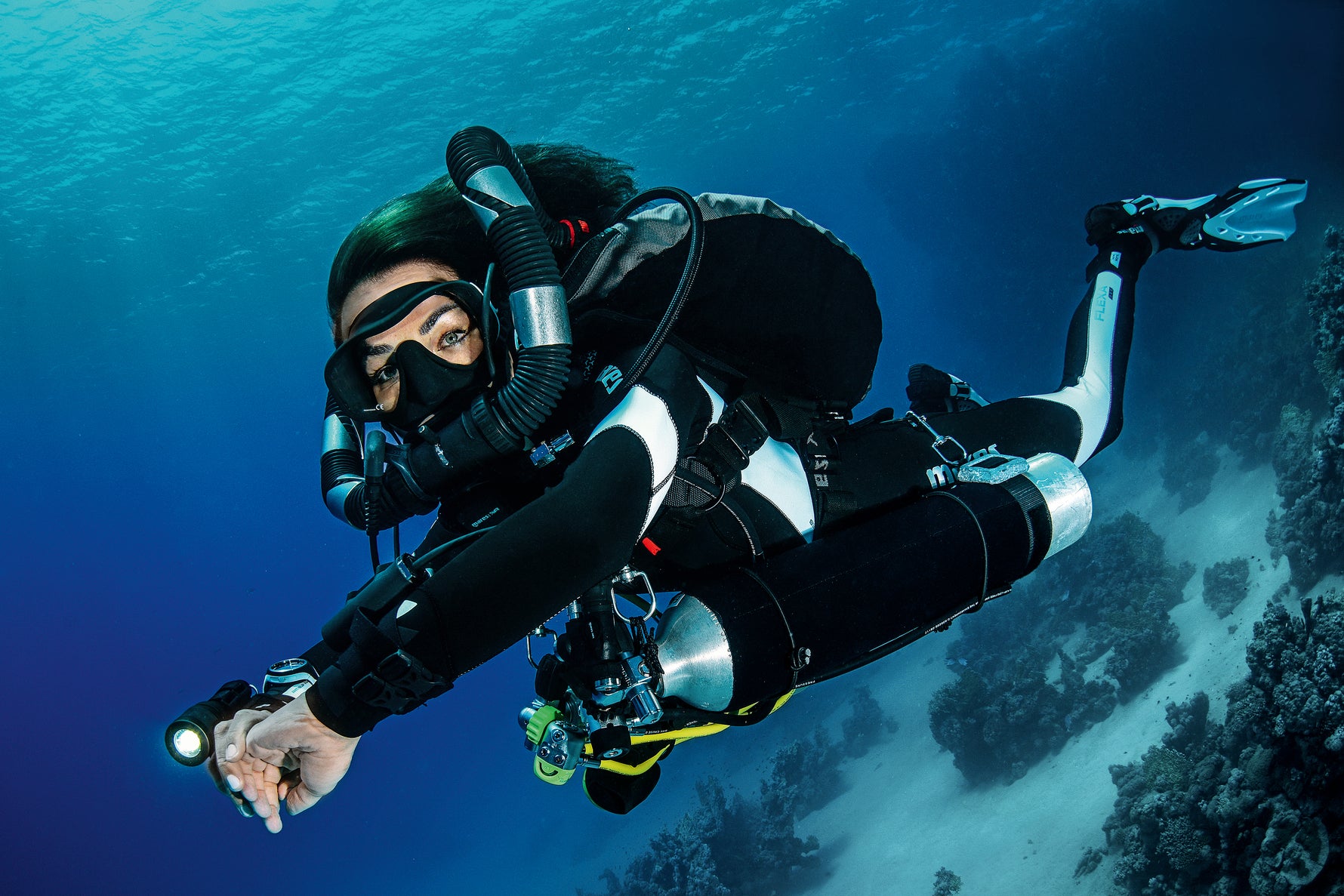
News
Your first extended range dive.
Exploring the fascinating underwater world is an exhilarating experience that leaves divers yearning for more. If you've conquered recreational diving and are now ready to embark on your first extended range dive, you're in for a treat. Extended range diving allows you to dive deeper and stay underwater longer, offering the opportunity to witness breathtaking marine life and dive sites. Let's remember the importance of protecting our precious Central Coast and its fragile marine ecosystems. Here are some essential steps to prepare for your first extended range dive. 1. Enhance Your Skills and Knowledge: Extended range diving comes with its own set of challenges and risks. Before attempting such dives, it is crucial to enhance your skills and knowledge. Consider enrolling in specialty courses such as deep diving, wreck diving, Horizon semi closed rebreather or enriched air nitrox diving to gain expertise and confidence.2. Selecting the Right Equipment:Choosing the appropriate equipment is vital for an extended range dive. Invest in high-quality gear, including a reliable dive computer with advanced decompression capabilities, redundant gas supply (twin tanks or side mount configuration), Semi closed rebreather, and suitable exposure protection to handle the colder temperatures at greater depths. Make sure all your equipment is properly maintained and serviced before each dive.3. Plan Your Dive:Proper planning is crucial for any dive, and it becomes even more critical for extended range dives. Research and choose a dive site that suits your skill level and interests. Study the site's depth, current conditions, and any potential hazards. Create a detailed dive plan that includes gas management, decompression stops, and emergency procedures. Consult experienced divers or local dive centres for valuable insights and advice.5. Physical Fitness and Mental Preparation: Extended range diving demands physical fitness and mental preparedness. Engage in regular exercise, focusing on cardiovascular endurance and muscle strength. Strengthen your core and improve flexibility through activities like yoga or Pilates. Mental preparation involves developing a calm and focused mindset, as extended range dives can be physically and mentally demanding. Practice meditation or visualisation techniques to help maintain composure underwater.6. Dive with a Buddy and Maintain Communication: Never embark on an extended range dive alone. Always dive with a buddy who is experienced and trained in extended range diving techniques. Establish clear communication signals and ensure you both understand each other's limitations and emergency procedures. Regularly check in with your buddy during the dive to maintain situational awareness and provide mutual support.Protecting Our Central Coast: As we gear up for our thrilling extended range dives, it is crucial to remember our responsibility towards preserving our natural environment. The central coast is home to diverse marine ecosystems that are vulnerable to human impact. Let's commit to being responsible divers by following established guidelines, respecting marine life, and avoiding damage to local reefs and other delicate habitats. Engage in local beach cleanups, support marine conservation organisations, and spread awareness about the importance of protecting our central coast.Embarking on your first extended range dive is an exciting milestone in your diving journey. By focusing on skill development, equipment selection, planning, physical fitness, and dive buddy communication, you can ensure a safe and memorable experience. Remember to dive responsibly and join the collective effort to safeguard our Central Coasts' marine ecosystems. Let's explore the depths with awe and respect, leaving behind a legacy of conservation for future generations of divers to enjoy. Happy diving, and let's protect our beautiful Central Coast underwater together!
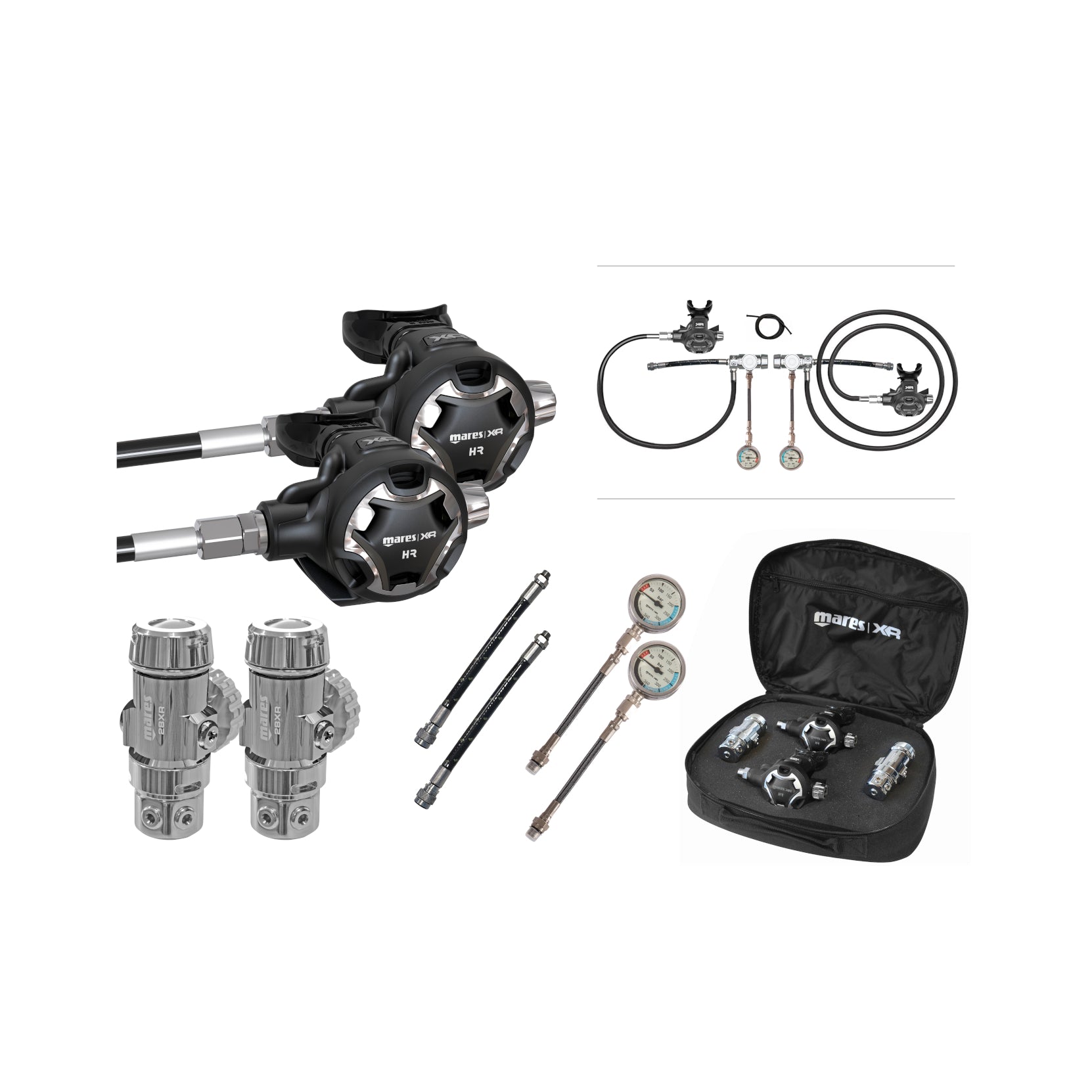
News
Mares 28XR HR SIDEMOUNT SET
This Mares Extended Range complete set is for your most challenging dives, both Sidemount and Backmount.
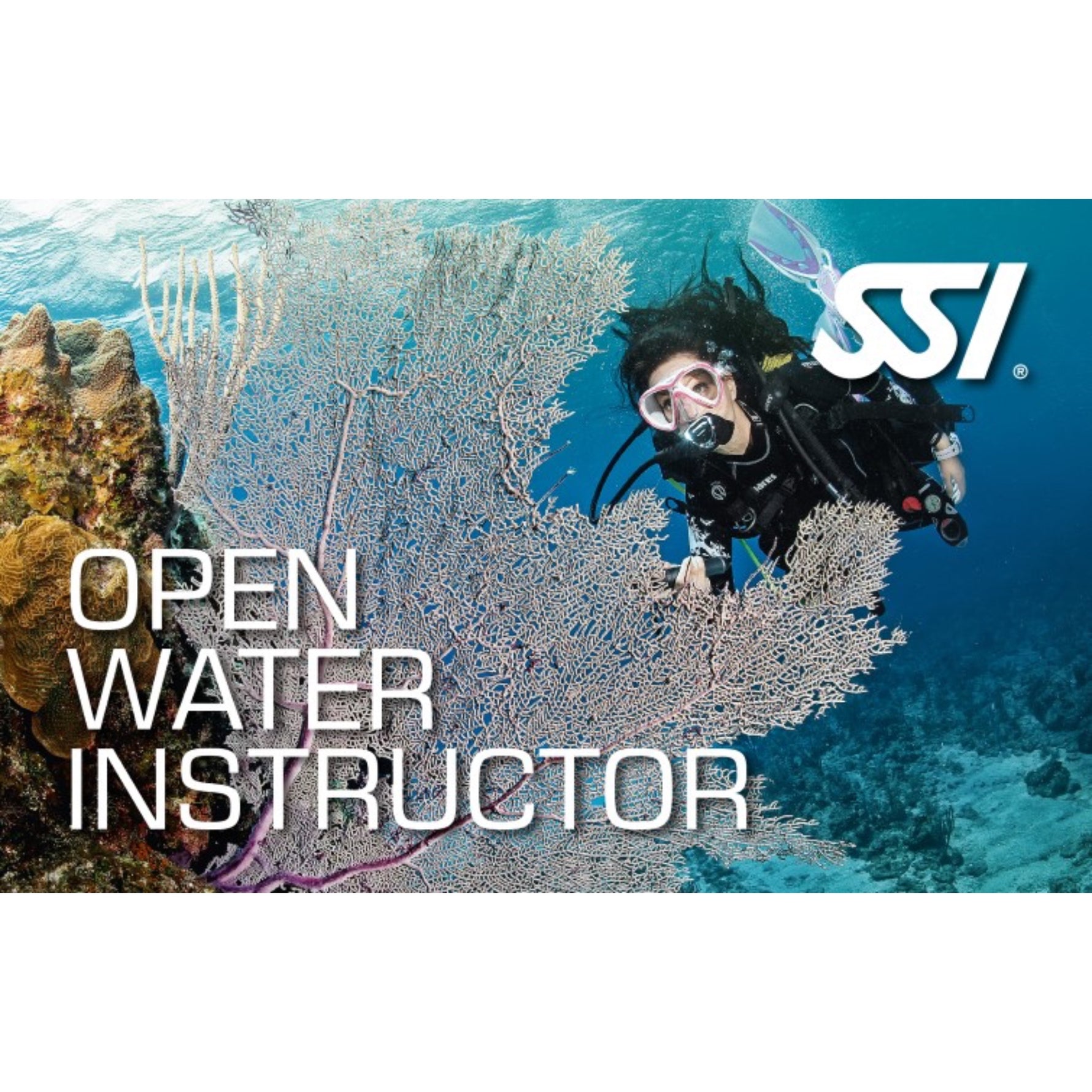
News
Becoming a scuba Instructor
Becoming a scuba Instructor is a lifestyle choice for some, a career for others and a lifetime achievement for others! You now have the opportunity to become a professional scuba instructor, train locally and work locally! Over 70% of the Earth's surface is covered by water, and this could be your "office!" There are thousands of job opportunities worldwide for the next generation of highly qualified Scuba Diving professionals, ready to give consumers their first taste of diving. start living your dream! PRO DIVE has been a market leader in the dive industry for over 50 years and during this time we have taught more people to dive, taken more people diving and certified more scuba instructors, dive masters and dive professionals than any other Dive Operator on the Planet. PRO DIVE Professionals work and manage dive operations throughout the world, from Mirabella in Spain, Greece, Malta, the Red Sea, The Caribbean, Fiji, New Guinea, Fiji, Indonesia, Vietnam, The Maldives, Thailand, Japan, Vanuatu, The Great Barrier Reef, P&O, Royal Caribbean Cruise Lines, Luxury Hotels in Bali, The Philippines, Heron Island, Lizard Island, Daydream Island, Lord Howe Island, as well as Private luxury Dive Boats for the Rich and Famous. So if PRO DIVE can't find you a job, someone is likely to come and find you!Our PRO DIVE Professional Career training centre is located on the beautiful NSW Central Coast, a playground between two major cities in NSW. We are very close to many surf and swimming beaches, national parks, hinterland and mountain ranges. So before you commence training in the morning or afterwards in the afternoon you can take a stroll or a swim and immerse yourself in the Aussie beach or bush culture at any of these wonderful locations. Make the most of your time.More importantly, the best shore diving sites on the Central Coast are within a 5 to 15-minute drive away. This means you don't waste two or three hours travelling from inner city suburbs, to the dive sites and back again, each day.Our Own Indoor Heated Training Pool - Convenience and Comfort!Learn your skills in our specially designed Scuba Training Pool, at a balmy 28°C, you will feel warm and comfortable throughout your training and it's available anytime you want to practice any of your skills. No commuting, no lugging heavy equipment, no need to contend for space with lap swimmers, screaming children or blaring public address systems and NO NEED TO RUSH.Our Own Dive Boat - No Extra Costs, Lots More DivingSnappy Tom is a twin-engined RHIB that was designed and built specifically for diving. The boat has a full-time crew and runs to a permanent schedule, that is tailored to suit the training programs we conduct.AccommodationAll of our full-time Professional Scuba Programs are conducted at our Dive Centre that features on-site accommodation. This area of the dive centre can only be accessed by the residents, so privacy and security is maintained. The accommodation is minutes away from numerous cafes, restaurants, takeaways, bars, nightclubs and cinemas. There's also a variety of sporting venues nearby such as cricket and football ovals, golf courses, tennis and skate parks, surfing beaches, lake fishing as well as plenty of scenic walks and bicycle tracks. The M1 Freeway, your direct route north and south is a few kilometres down the road.
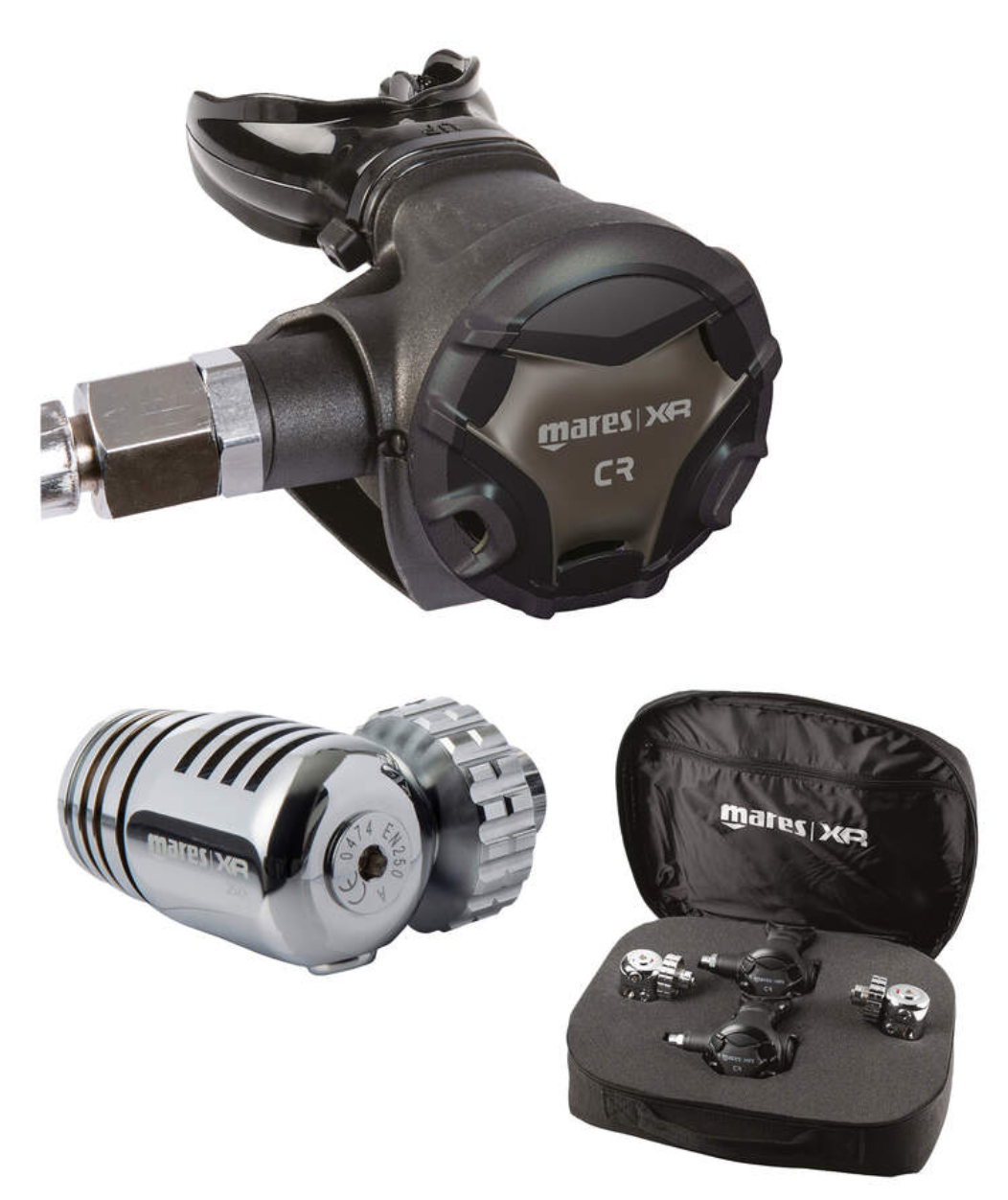
News
TWIN TANK DIVING
To be truly safe in the knowledge you are carrying enough gas for your intended dive, you can either carry one large fifteen or eighteen litre tank- or carry two smaller tanks, of equal or greater volume.
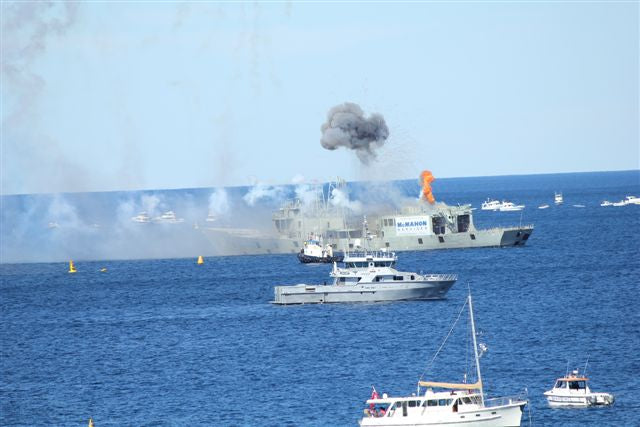
News
EXPLORING THE DEPTHS
For scuba diving enthusiasts, the allure of exploring underwater wrecks is hard to resist. One such wreck that has become a scuba diver's paradise is the ex-HMAS Adelaide.,

News
STAXR Single Tank Adapter
The STAXR Single Tank Adapter is the perfect XR accessory for divers who need to transition between a single and double tank setup.
- Choosing a selection results in a full page refresh.
- Opens in a new window.